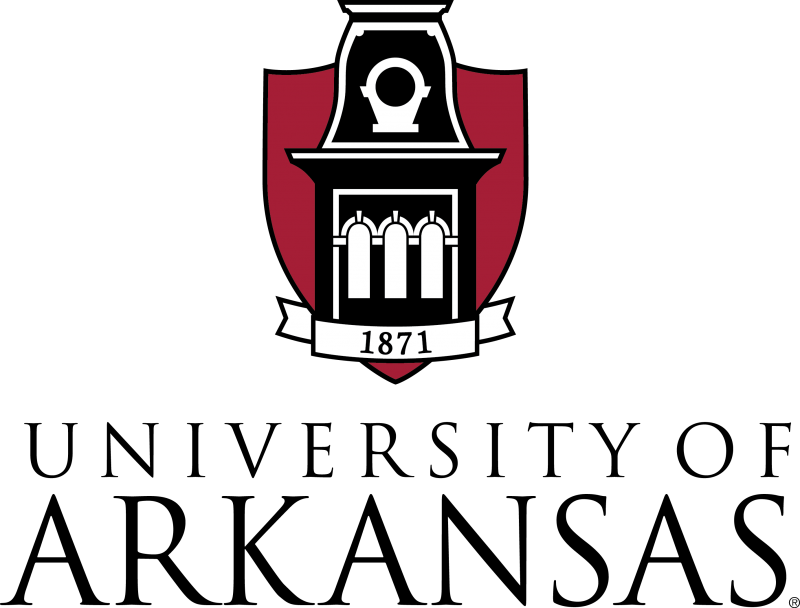Two engineering faculty members landed prestigious early career development awards from the U.S. Department of Energy and National Science Foundation.
Jacob Monroe
Jacob Monroe, assistant professor in the Ralph E. Martin Department of Chemical Engineering, received an Early Career Award from the Department of Energy through a program designed to support researchers at the outset of their careers, when many scientists carry out some of their most formative work.
Monroe and his project, which focuses on creating multiscale models, were selected for funding by the department’s Office of Basic Energy Sciences. According to a news release, the award, totaling around $875,000, was the only one in Arkansas in 2023. Monroe is the fifth U of A faculty member to receive the department’s Early Career Award since it was created in 2010. Monroe is the first recipient in the College of Engineering.
Chemical Engineering Department head Keisha Bishop Walters said she was pleased but not surprised.
“Jacob Monroe is extremely talented. This award will allow him to find solutions for a fundamental problem in the field of computational modeling and make a significant impact on the scientific community while training students to join the workforce with cutting-edge knowledge and skills,” she said.
The award comes from the department’s Early Career Research Program. Research topics must meet the scope of one of the department’s eight major program areas.
“This is a fantastic opportunity coming at a critical time. I am extremely excited about this project. I hope it will not only provide new tools for researchers but also contribute unique perspectives concerning the incorporation of machine learning into molecular simulation,” Monroe said.
Monroe’s research involves computational models. His methods allow researchers to switch to and from two different resolutions of models of multiscale materials, including proteins and polymers.
Monroe joined the Chemical Engineering Department in January 2023. He earned his Ph.D. from the University of California, Santa Barbara, in 2019, and conducted a National Research Council postdoctoral fellowship at the National Institute of Standards and Technology in Maryland. He leads the Monroe Molecular Simulation Group.
Alexander Nelson
Associate Professor Alexander Nelson received the CAREER award from the National Science Foundation’s Division of Information and Intelligent Systems’ Human-Centered Computing program. This is the most prestigious award presented by the foundation to support junior faculty who display the most effective integration of research and education in the context of the U of A’s mission.
His project, titled “Enhancing Ambient Capacitive Sensing Through Improved Resolution and Multi-Modal Sensor Fusion,” will contribute to the advancement of medical technologies for physical and occupational rehabilitation patients.
Physical therapists, occupational therapists and physicians are only able to see their patients for a brief period on any given day. Some health factors rely on a high number of motions to re-learn how to do them, teaching the brain how to make the neurological connections needed to move the body properly. The problem this project seeks to address is that there is not enough time in the average rehabilitation appointment for doctors to supervise the patient’s movements completely and with the highest accuracy.
The most common solution would be to use cameras to track the motions of the patient, but that presents issues related to privacy and potential connection problems if coverage is unstable. Instead, Nelson’s project will use wearable capacitive sensors to perform real-time motion analysis.
“The cool thing about this project is that it is human-centered,” Nelson said. “A lot of people think computer science is just about building faster, more powerful technology — and it is — but they don’t think about how technology can improve the human experience through interaction.”
The Chancellor’s Innovation Fund in support of faculty research at the U of A helped Nelson and students complete a project using some of the tools that will be used in the project.
In addition, the college’s Engineering Research and Innovation Seed Funding Program helped Nelson and his students work with capacitive sensor arrays for smart robots, the same technology that will be used in this project.
“Internal funding mechanisms produced the pilot work that led to the hypotheses and research questions that we want to address with this project,” Nelson said.
Jia Di, head of the Department of Electrical Engineering and Computer Science, is excited to see junior faculty in the department being awarded for their hard work.
“It is an honor to have Dr. Nelson on our team, and we are proud to see his work recognized by the National Science Foundation with this prestigious award,” Di said. “This grant will help Dr. Nelson create impactful work in both computer science and health fields.”
